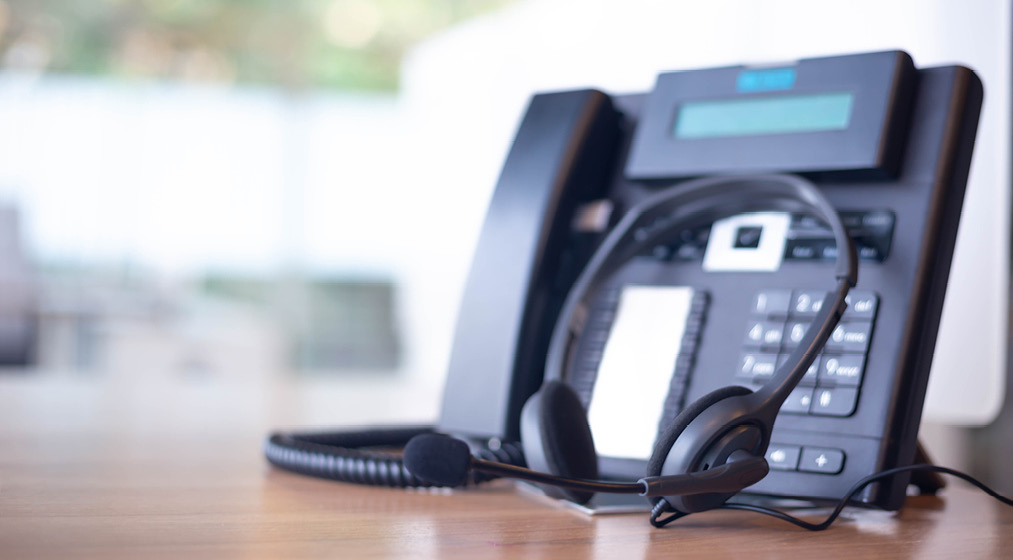Navigating Travel Industry Risks with Intelligent Communications
We’re going to explore some real-life unforeseen circumstances that the travel industry has had to navigate and how intelligent communications solut...
With VoIP phones and systems offering savings between 50% and 75% compared to existing landline networks, there’s plenty of reason to make the switch to a more flexible, internet-based communication platform. But not every VoIP phone provides the same benefits, so it can be difficult to choose the right one if you don’t know exactly what you’re looking for. Let’s take a look at the different VoIP phone types available and the variables involved in choosing the best VoIP phone for your business calls.
VoIP desk phones adopt a similar look to standard office phones, with some important differences. They’re usually larger, with more buttons, and boast a screen which can be used to direct phone calls and perform other features associated with VoIP services. They might look like regular phones, but a VoIP desk phone is capable of connecting with other internet-enabled and VoIP devices throughout your VoIP phone system. So customers, employees and employers can remain connected and up-to-date on all necessary elements of the business.
With a desk VoIP phone, you can seamlessly switch between voice and video calls without logging into different applications. You can also add new participants and create video conferences on the fly, all from the same device. The VoIP phone of choice for those who spend most of their time at their desk.
The beauty of VoIP technology is how adaptable it is to different devices, including mobile phones. Any smartphone can instantly become a VoIP phone by installing the necessary application. By installing the software that corresponds with your business VoIP service provider, you’ll have access to all the features and tools you need to do your job.
Mobile phones that are VoIP-enabled make remote working easier than ever. You can take your work with you wherever you go, as long as you have an internet connection. Video conferencing and switching between different video calls is a piece of cake, thanks to the VoIP app and the smartphone’s camera capabilities. But even if you don’t have a Wi-Fi connection to manage these calls, mobile data can help you stay connected.
Similar in appearance to cordless phones you’ll find in most homes, a VoIP cordless phone can make and receive VoIP calls, along with benefitting from other great VoIP features. Falling between VoIP desk phones and VoIP mobile phones in the portability department, they’re able to move around an office freely but need to stay within a certain radius of their base or the internet connection to work. They’re great for moving between nearby areas in an office, offering a level of freedom not found with desk VoIP phones, while retaining plenty of features to keep you informed and connected to your colleagues.

It’s more of an aesthetic feature, but the size of the screen and the type of screen featured on your VoIP phone is something you might consider before making a choice. Would you be happy with a more downplayed colourless screen? Or do you want a large, bright and colourful screen with an intuitive user interface? Would this clearer image help you be more productive with your VoIP calls? And if it’s a desk VoIP phone with camera features, is the screen big enough to fully take advantage of video conferencing benefits?
Shortcuts save workers time and money – the faster you can do something, the more work you can do and the more money you can make for the business. The ability to programme keys to your liking in your VoIP phone could be a welcome one if you love to customise your tech. Change pre-built key commands to suit your own preference, for quicker access to features and numbers you use every day. If programming your keys to your preferred commands are something that’ll improve your productivity, it’s one to look out for.
Planning to use your phone in conference calls with multiple people in the room? You’ll want to ensure your phone has excellent hands-free usability. A loudspeaker and an optimal microphone will ensure everyone within the call is heard clearly.
How about inter-device connectivity? One of the benefits of VoIP calls is that they’re able to be passed between VoIP devices. For ultimate connectivity, you’ll want to make sure your VoIP phone can pass calls to both other phones and all other VoIP-enabled devices in and out of your office, as well as transferring calls between different mediums. For example, transferring a voice call to a video conferencing session. You could begin a two-way call, before moving over to a video conference, while inviting and adding extra callers whatever platform they’re using, all without ever dropping the original call or needing to switch to a new programme. This will save time from needing to organise multiple new calls of different types and will make the communication process much simpler for all involved.
Beyond the above, you could also look into what handy accessories are available for the VoIP phones you’re investigating. A lot of businesses taking calls via VoIP phones or other VoIP devices use headsets, if the hands-free approach is something that interests you? Then there are solutions like keyboard extensions, which can give you more buttons and options when using your VoIP phone.

If your business is largely office based, it’s not likely you’ll need to install apps on mobile phones, and will likely benefit more from desk based VoIP phones. This will give you all the call types and security features you need, without the necessary cost or admin of having mobile apps. On the other hand, if your business has embraced remote or hybrid working, you may benefit from a mix of desk phones and mobile apps to ensure staff have access to all the VoIP features they need, regardless of whether they’re in or out of the office.
It may not even be necessary to have VoIP desk phones at all as you could simply have employees install the relevant application or software on their mobile phone and laptop, providing them all the benefits, without the costs of additional hardware.
If you’re a larger business with in-house IT, your required support may not extend beyond the initial onboarding and training on the software. Once you’re up and running, your own IT team will likely be able to handle any technical issues.However for a small business, tech support for VoIP phones may be a bigger consideration and something you’ll need to think about when choosing your provider.
VoIP phones provide new opportunities to sync your call management directly with your essential customer service systems. Specifically you can integrate your VoIP phone system with your CRM, making it easy to record customer calls for future reference in one place. But these features aren’t guaranteed, so if it’s something you’re interested in, check with your VoIP phone provider what additional integrations are available.
At Elite Group, our experts have decades of experience in technology and communications. If you need advice on making your next move into VoIP phones, VoIP service providers and VoIP phone systems, get in touch with Elite Group today.